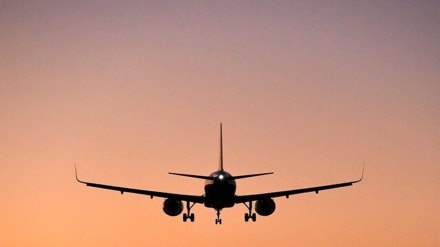In the past year, more airlines have resumed flying over Afghanistan as conflict in the Middle East intensified and aviation regulators softened their stance on using Afghan airspace. The Taliban has stated that this has led to a surge in overflight payments—fees that countries charge airlines for navigation services. However, making these payments to the Taliban-controlled aviation authority remains a complex challenge due to international sanctions and the freezing of Afghanistan’s government bank accounts.
Reliance on third-party intermediaries
Before the Taliban took power in 2021, the International Air Transport Association (IATA) collected overflight charges on behalf of Afghanistan’s aviation authority. IATA ceased this service in September 2021, leaving millions of dollars in collected fees frozen. Airlines and private jet operators now rely on third-party intermediaries, known as trip support firms, to process payments to the Afghanistan Civil Aviation Authority (ACAA). Some of these intermediaries, based primarily in the UAE, use additional middlemen to facilitate transactions, adding complexity and raising legal concerns.
Legal and financial risks
Lawyers and sanctions experts warn that the use of intermediaries to process Afghan overflight payments increases the risk of illicit financial flows. Some Western trip support firms claim they have never received invoices for overflight fees, making payments difficult. Jon Braid, owner of British-based Jet Team, highlighted the challenge, stating, “The biggest difficulty is basically finding a way to pay the bills … no one sent us a bill yet.”
Airlines’ position and regulatory challenges
Flight tracking data shows that major airlines such as Lufthansa, British Airways, Singapore Airlines, Air India, and China Airlines have used Afghan airspace over the past year. Lufthansa confirmed compliance with sanctions but declined to comment on its payment methods. The Taliban did not respond to requests for details on overflight revenue.
Afghanistan charges a flat $700 fee per flight, which should have generated close to $6 million per month in late 2023. However, intermediaries say it can take six months to a year for the ACAA to issue invoices, leading to large outstanding bills. Some firms avoid arranging overflight permits altogether to prevent banking or legal complications.
Overflight payments
While the US Treasury has authorised transactions for air navigation services, uncertainty remains. The UAE, a key financial hub for aviation payments, has strengthened its oversight after being removed from the Financial Action Task Force’s (FATF) grey list, though it remains a high-risk country under EU regulations. With the Taliban not disclosing its earnings from overflight fees, questions persist about the financial transparency and security of these transactions.
(With Reuters inputs)
